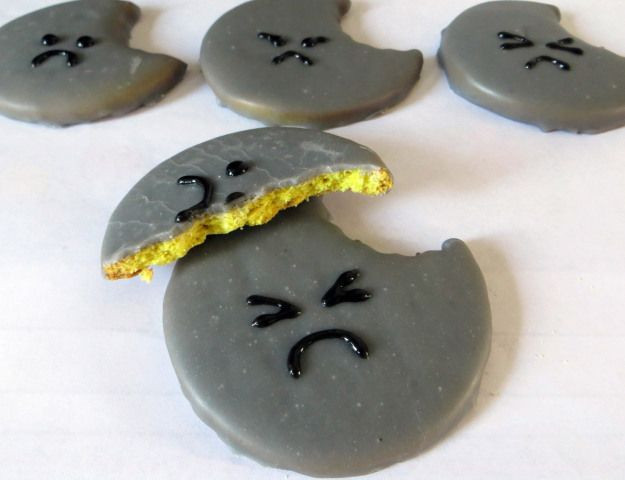Can Baking Make You Happy? ‘Depressed Cake Shop’ Raises Awareness About Mental Illness And Baking's Therapeutic Qualities

The smell of freshly-baked cookies or cake, sweet frosting, creative delights -- could these all be recipes for countering depression?
Simple physical or creative activities are often considered therapeutic or helpful for people struggling with depression or other mental illnesses. Exercise, art therapy, eating healthy foods, practicing simple hygiene – these can all play a role in uplifting someone who is feeling down. But the idea of baking or cooking as a form of therapy has recently become popular, and now bakeries are sprouting up with the aim to raise awareness about depression.
The act of baking hasn't been analyzed to have any particular clinical significance, but mental health experts believe it could be a good form of recreational therapy. It’s an activity that requires physical movements, focus, and also artistic creation – and is often social – making it a good pastime for depressed individuals who often shirk social events or even have a hard time getting out of bed or leaving their home.
"When I'm in the kitchen, measuring the amount of sugar, flour or butter I need for a recipe or cracking the exact number of eggs - I am in control,” John Whaite told BBC. “That's really important as a key element of my condition is a feeling of no control."
Some mental health experts believe that cooking or baking helps people with depression because it fosters the idea of nurture and goodness.
Raising Awareness
Then there’s the Depressed Cake Shop, several bakeries around the world that sell only grey desserts to raise awareness about depression and mental illness, inspired by baking’s therapeutic qualities. The founder of Depressed Cake Shop, Jane Reyes, first became acquainted with depression when she found out she had Charcot Marie-Tooth disease, which causes loss of limb function.
The Depressed Cake Shop features grey macaroons with rainy clouds drawn on them, grey lemon meringues, cupcakes with black dog sprinkles (inspired by Winston Churchill’s description of his depression as a “black dog”), and “sad donuts.”
For others, like Rebecca Swanner, who was the organizer of Depressed Cake Shop Los Angeles, baking itself doesn’t necessarily help her depression, but the reaction of the people she serves does. “[T]he response I get from people trying the baked goods makes me so happy,” she told Time.
London’s Depressed Cake Shop host Melanie Denyer, meanwhile, finds baking (or cooking in general) therapeutic and uplifting. "I have, for years, turned to my kitchen and cooked, savoury or sweet, because I get some relief in the creation of something that, in and of itself, is goodness, love, nurture - sometimes even beauty - when all I feel I am is ugliness, pain and a drain on all around me," she told BBC.
And perhaps the only aspect of baking to be wary of is to not eat all of the sweets yourself, which may prove to be counterproductive.
Published by Medicaldaily.com



























